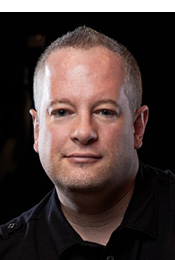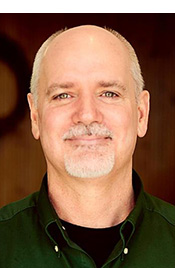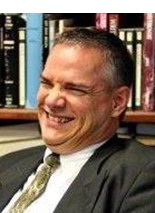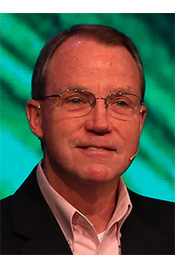We spoke with ministers of churches large and small in several states about how their church finances have been impacted by COVID-19 and the resulting stay-at-home orders. The sampling size is small—five ministers—but most report improved giving after a rough first couple of weeks.
_ _ _
By Chris Moon
When asked about church finances during the COVID-19 pandemic, pastor Vince Antonucci had a quick answer.

“It’s scary,” he said.
The lead pastor of Verve Church in Las Vegas—which averaged 285 people in attendance before the shutdown—is in a city that’s been particularly hard hit because of the outbreak.
The casinos have shut down, causing mass layoffs. Some are predicting 50 percent unemployment in that city. But so far, the financial situation has been relatively stable at Verve Church.
Antonucci said three of the four offerings immediately after the suspension of in-person worship services have been “in the ballpark” of what the church ordinarily would collect.
“I have been prepared mentally for, ‘We are going to lose a lot,'” Antonucci said.
Antonucci’s awareness of his church’s financial condition is similar to pastors across the country, who are only just beginning to learn the full ramifications of the COVID-19 outbreak.
Churches face two significant obstacles at it relates to giving by their members.
First, churches aren’t meeting in person—creating difficulties for members who ordinarily would drop their tithes into the offering plate. Second, the economic downturn is very real, shuttering businesses across the country and ballooning the unemployment rate. Some church members simply aren’t going to have as much to give.
Navigating those obstacles will be every pastor’s challenge.
In Las Vegas, Antonucci said Verve always has pushed online giving, with 67 percent of its giving done that way. The future is a little hazy, however, as the full effects of a recession become known.
Verve has been creating one- to two-minute daily devotional videos each day. Some of them have addressed the issue of giving.
Antonucci said the message might eventually be to encourage people who haven’t lost income to continue giving in light of those who have.
“Some of our family are financially sick. We need to carry them,” Antonucci said.
AN OFFERING BASKET IN THE ENTRYWAY
In Derby, Kan., not far from Wichita, Rick Wheeler, lead minister of South Rock Christian Church, has been keeping an eye on the offerings.

“Our first week was terrible,” said Wheeler, whose congregation averages 1,400 to 1,500 on Sundays. Giving during the first week of online-only services was down 70 percent.
“I think people were just in shock,” Wheeler said.
But the church beefed up its online presence, and online giving has grown from about 30 percent of total giving to about 50 percent, Wheeler said.
Still, that leaves a lot of giving in the form of cash and checks—in an era when the church isn’t meeting in person. Wheeler said some of his church members don’t trust online giving platforms.
So South Rock put an offering basket in the entryway of the church building. Members ring the doorbell at the now-locked church and are allowed to drop off their offerings. The church had a significant Easter offering. All told, giving is about 18 percent down from budget.
Wheeler said South Rock has opted not to make giving a central focus of its messages.
“We decided we’re not going to beat people over the head,” he said.
The question now is about how the limping economy will affect future giving. Wichita depends heavily on the aircraft manufacturing sector, where layoffs are being announced. It’s hard to say how people will give going forward.
“We’ve never been through a pandemic like this,” Wheeler said.
PRAYING HARD
In Rochester, N.Y., Anchor Christian Church late last year finished a $1.5 million building project at its church. A portion of that work was financed.

Senior minister Chris Bacus said the church had “virtually no income” the first week of the closures and just a little bit of income the second week.
“It can cause you to start praying hard,” Bacus said.
The church that averaged 186 weekly in 2019 previously had investigated using an online giving platform but hadn’t implemented it. Over the span of a few days, it launched one. But Bacus estimates only 5 to 10 percent of the church’s income is coming in that way so far.
Most offerings are coming via checks sent through the mail or dropped off at the church building.
Income at the church currently is down about 8 percent on the year, based on expected revenues, Bacus said.
Fortunately, Anchor Christian Church has a healthy reserve fund, he said, which would have enabled it to continue on for several months if giving had continued to be a major problem.
“I think that’s one of the blessings that’s going to come out of this,” Bacus said, noting that families and churches likely have recognized their need to maintain financial reserves for hard times.
HIGH PERCENTAGE OF ONLINE GIVING HELPS
In Knightdale, N.C., Bobby Wallace, lead minister of Movement Christian Church, said his congregation’s giving has been stable—and even maybe a little inflated—during the pandemic closure.

He attributes that to the messaging from the church during the past few weeks—reminding members that the ministry must go on and that the church needs to continue to support its missionaries.
“I think it’s resonating,” Wallace said.
Movement Christian Church, a two-year-old church plant with an average attendance of 100, always has pushed online giving. About 80 percent of the church’s giving comes in that form, and it may be even higher now.
The church, however, is not yet fully self-supporting, and so Wallace said he is hopeful that its supporting churches are doing well financially.
“It’s definitely a concern, but right now it seems like we’re in a good spot,” he said.
Wallace said he’s just happy the church hadn’t yet pulled the trigger on landing some permanent worship space. The congregation had been meeting in a local school until the pandemic.
Having a mortgage or a long-term lease agreement would have created some added pressure—and the church would have been paying for space it wasn’t able to use.
“We see the wisdom of God in all this,” Wallace said.
A WAKE-UP CALL
In Grand Prairie, Texas, Barry Cameron, senior pastor of Crossroads Christian Church, said the church was likely “a little bit below budget” in offerings because of the COVID-19 pandemic. But the megachurch remains in a strong position.

Crossroads already had robust online giving, and the pandemic may persuade even more members to sign up for it, which would be a good thing, Cameron said.
Moreover, the church decided more than a decade ago to eliminate all of its debt and to pay cash for any of its major projects. The church has a $24 million youth center under construction right now.
Crossroads also has contacted all of its missionaries to tell them their funding would continue “until Jesus comes back,” Cameron said.
“Some of them couldn’t even respond without tears,” he said.
Cameron said the pandemic should be a wake-up call to churches to get their financial houses in order. It’s a wake-up call that individual Christians should pay attention to as well.
It should not be good enough to be just a step or two away from a financial disaster, Cameron said. People and churches should take their own hard steps, even in good times, to eliminate debt and learn to live within their means. Cameron said COVID-19 won’t be a one-off event.
“There will be something else,” he said.
Chris Moon is a pastor and writer living in Redstone, Colorado.

0 Comments